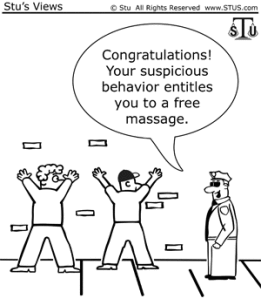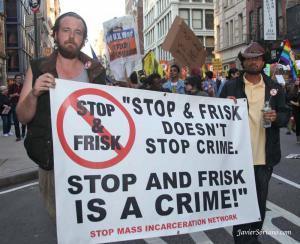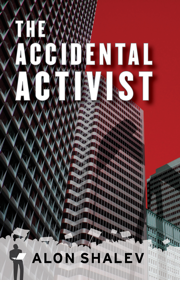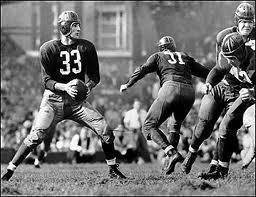Alon Shalev's Blog, page 31
September 17, 2012
Happy New Year Everyone
Last night and today, Jews all over the world come together to welcome in our new year – Rosh Hashanah. People seem to dig out all kinds of ritual and traditions. It is both a time of introspection (the 10 days leading up to the Day of Atonement, Yom Kippur) and a tine of hope.
We need both.
 Five years ago, we began a new tradition (can a tradition be new?) that has become a part of the SF Hillel Jewish Student Center year. We meet for a festive dinner and then many students take advantage of the generosity of local synagogues who have offered students free tickets for services. Others stay at the Hillel House for an alternative ceremony one that focuses on goals and aspirations for the new year.
Five years ago, we began a new tradition (can a tradition be new?) that has become a part of the SF Hillel Jewish Student Center year. We meet for a festive dinner and then many students take advantage of the generosity of local synagogues who have offered students free tickets for services. Others stay at the Hillel House for an alternative ceremony one that focuses on goals and aspirations for the new year.
By nature, I am an introspective person all year round. So I think this is why I am drawn towards the need to set new goals, dream new dreams, hope for a better future for all.
Like Michelle Citrin, I love Rosh Hashanah

Wishing all my Jewish friends a Shana Tova (a good year), and to everyone a year of health, happiness and peace.
——————————————————————————————————
Alon Shalev is the author of The Accidental Activist and A Gardener’s Tale. He is the Executive Director of the San Francisco Hillel Foundation, a non-profit that provides spiritual and social justice opportunities to Jewish students in the Bay Area. More on Alon Shalev at http://www.alonshalev.com/ and on Twitter (@alonshalevsf).

September 14, 2012
Guest Blogger – Suzie Thornton
Suzie Thornton is the female protagonist in The Accidental Activist. Being a fictional character has never stopped her expressing her own opinion.
————————————————
I couldn’t help myself. I couldn’t stand by and watch big business trample over individuals, communities, and villagers. Someone had to stand up to the multinational corporations and who better than me? Well many people actually, who are smarter, more articulate and strategic. But back then I was a young, single woman, with no assets that anyone could threaten to take from me. I was working part-time in a bookstore. And maybe, just maybe, I was looking for a fight.
Or so I thought.
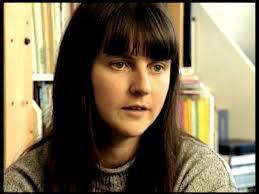 Helen Steel – the real heroine
Helen Steel – the real heroine
No one suspected that the Oilspill court case would become the longest in British history. No one imagined that I would be denied legal aid and forced to defend myself against the most accomplished lawyer in British libel history. It took a huge chunk of my life away from me, something I will never get back. But I had to do it. I simply wouldn’t be me if I had ignored or buckled to the threat. And I got to know Matt in a way that I doubt would have happened.
It’s funny but one of my friends who read The Accidental Activist claimed that it is a romance novel. Of course it isn’t (and don’t tell the author – he might try and sell more books this way). The Accidental Activist is a courtroom drama wherein a multinational corporation tries to crush a tribe in South America and anyone who tries to stop them, or highlight their injustices.
I studied Political Science at London University, but I never learned as much as I did taking on the big guys. You can never understand how the legal system helps the multinationals until you are on the inside. And then it is simply frightening.
I’m glad that The Accidental Activist focuses on Matt. He was an unsung hero, a man who not only changed the outcome of our court case, but changed the face of political advocacy. I’m glad Alon Shalev was able to get inside of Matt’s head and show his transformation from a self-absorbed yuppie to a man who was ready to harness his talents to fight social justice.
But the sex! Did you guys have to get so explicit about it? You know my mother will read the book, right?
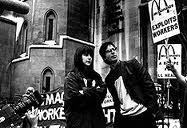
This blog post is dedicated to Helen Steel – the real heroine in the real McDonald’ Libel case upon which The Accidental Activist is based.
——————————————————————————————————
Alon Shalev is the author of The Accidental Activist and A Gardener’s Tale. He is the Executive Director of the San Francisco Hillel Foundation, a non-profit that provides spiritual and social justice opportunities to Jewish students in the Bay Area. More on Alon Shalev at http://www.alonshalev.com and on Twitter (@alonshalevsf).

September 13, 2012
Mortgage Lenders are Pissing Their Pants – Roger Ingalls
It’s brilliant! Citizens may finally have a weapon to fight the financial industry shysters. County and city governments are considering the use of eminent domain to seize mortgages and then help owners in those communities refinance their homes at fair market value.
Eminent domain is normally used by local governments to seize property needed for highways, infrastructure, and other public works that are projected to benefit the greater community. Seizing mortgages is a slight twist on the process but, in the same vein, it is being considered for the purpose of ensuring the long term viability and prosperity of local communities.
No doubt the financial industry is all fired up and worried. They’re pursuing a full court press to quiet and scare local politicians who are trying to help their constituents. Lenders know that if this sticks, there will be an avalanche and their recklessly conjured house of cards will come crashing down. Mortgage lenders (banks) and their special interests are threatening litigation and using fear tactics such as promising wholesale leading boycotts of communities.
Lt. Governor Gavin Newsom has stepped up to the plate and is trying to give local governments a fair opportunity by publicly calling on the SIFMA (finance industry special interest) to “cease making threats to the local officials…We must think big and help our local governments develop solutions — because the industry and federal government have not.” He sent a letter to U.S. Attorney General, Eric Holder, asking federal prosecutors to investigate any attempts by Wall Street investors and government agencies to “boycott” California communities that are considering such moves.
The financial industry must view eminent domain mortgage seizer as a legitimate “fight back” strategy because they are responding ferociously. There are a handful of cities and counties across the nation considering this idea and we should do our best to support them.
Wall Street and the financial community rewrote the laws that govern their industry and within eight short years crashed the global economy. They then pressured their Washington buddies for a bailout and came out of the mess bigger and more powerful. Home owners were left with devalued assets while the banks were allowed to keep receivable notes at the original high value.
The eminent domain strategy proposed by local governments could be the great equalizer. Spread the word, it’s brilliant!


September 12, 2012
Drink And Market Responsibly.
First a confession: I spent most of my life living in two countries where the drinking age is 18. I believe it should be like that here. I went to pubs in England from the age of 15 and, as long as we behaved and drank responsibly, we were tolerated. We did drink responsibly, reserving our focus for debates about politics, justice and women.
 Second, when my sons go to a bar and order their first drink, I want to be there. I want to treat them and I want to be a part of their rite-of-passage. If they are 18, I might be able to slip this in before they leave home. If they are 21, there is less chance.
Second, when my sons go to a bar and order their first drink, I want to be there. I want to treat them and I want to be a part of their rite-of-passage. If they are 18, I might be able to slip this in before they leave home. If they are 21, there is less chance.
I enjoy my beer (a stout if you are ordering), Johnnie Walker Black, and wine. I was always the designated driver (first kid with a driving licence and a mother who gave me access to her car) and before I was given the keys, I was warned about drinking by parents who cared.
I work with students and I see the intense pressure they are under to drink. I see the repercussions of over drinking and the guilt and damage that follows. They choose to imbibe, but we as a society allow them, as teenagers, to build an everyday experience into a mythical and dangerous campus ritual. Over-drinking and driving, sex or drug experimentation bring life-destroying trauma and damage.
So I am pissed (there’s a pun there if you speak the Queen’s English), when I saw that Urban Outfitters decided to market a new line of t-shirts just in time for young women filling their wardrobes before a new academic year with messages that encourage drinking and is modelled by young women who are quite possibly under drinking age.

How Old Does She Look?
These so-called cool and humorous messages are no joke. In fact, they reflect a reality that alcohol use is associated with increased rates of sexual activity for teens as well as decreased condom use.
A just-published survey showed disturbing results including one out of five teens is drinking, using drugs, or smoking during school hours. Urban Outfitters know what they are doing. Most of their customers are between 18 and 24 and the second largest demographic is under 18.
 Their stores will be flooded with young women buying their T-shirts and Urban Outfitters will make plenty of money. But profit doesn’t allow you to sleep at nights and I hope those who made this ruthless decision to market such a message come to realize what they have done and change it.
Their stores will be flooded with young women buying their T-shirts and Urban Outfitters will make plenty of money. But profit doesn’t allow you to sleep at nights and I hope those who made this ruthless decision to market such a message come to realize what they have done and change it.
And if the high-ups in the company are awake in the wee hours, tossing and turning, maybe turn on the news or open a newspaper. You might find stories that will give you nightmares, but the reality is, most of them will not even be reported. And you will be too busy anyway drooling over your stock portfolio and how you plan to spend your bonus.
——————————————————————————————————
Alon Shalev is the author of The Accidental Activist and A Gardener’s Tale. He is the Executive Director of the San Francisco Hillel Foundation, a non-profit that provides spiritual and social justice opportunities to Jewish students in the Bay Area. More on Alon Shalev at http://www.alonshalev.com/ and on Twitter (@alonshalevsf).

September 11, 2012
Stop and Frisk: Evidence of Class Warfare – Tom Rossi
It’s come down to this: the end of, “innocent until proven guilty.” That principle is not in the U.S. constitution. However, it’s been the policy that has guided law enforcement in this country for decades.
“Stop and frisk” is a practice whereby the police can stop someone in the street for no other reason than he or she “looks suspicious.” It doesn’t matter if a crime has been committed nearby. It doesn’t matter if the person matches the description of an alleged perpetrator. He or she can be stopped and given a body search simply due to his or her appearance.
Who will they stop? Will it be white men in suits, walking into bank’s corporate offices? Well, that hasn’t happened, so far. So far (and this is what the policy is designed for) the people who have been stopped have been people of very little means – people in poor neighborhoods wearing inexpensive clothing.
In 2011, the New York city police stopped people 685,724 times. Many of those were repeats, as some people got stopped multiple times. Of that number, 88 percent were innocent – in other words not carrying any weapons, drugs, nor rhinoceros tusks. Only 9 percent of the total were caucasians, even though causasians were almost twice as likely as other groups to be found carrying a weapon.

Stop and frisk is a policy that betrays the classism and racism of the security hawks, and it’s spreading. San Francisco is now considering making “stop and frisk” policy. Several other cities are either considering it or have implemented it at least to some degree.
Let me be clear. When I say it’s the end of “innocent until proven guilty,” I’m not talking about jail or prison. That goes on, too, but what I’m talking about is the violation of people’s rights to personal self and privacy.
I’m also talking about the “haves” and the “have-nots,” and the differences between the two groups’ experiences of “our” country and democracy. Stop and frisk seems another way to separate those who are valued in our society from those who are unwanted.
The danger, and what allows these policies to take hold, is that “normal,” middle-class, working people will think, “Oh, that won’t affect me. I don’t look suspicious and I don’t hang out in bad neighborhoods.” But in this, winner-take-all economy, so many lines are being blurred. The once-affluent wear out their clothes because they can’t afford new ones. They live in places they would not have considered before. They drive old cars.
But somehow the people who have managed to keep their jobs still have their attitude that, “That won’t happen to me.” As a result, they aren’t too concerned, and feel that the benefits of increased security outweigh the costs – whatever they may be.
I say the costs of an unjust society are much higher than the, “How does this affect me?” paradigm can measure. More and more of us lose power in this society every day. The Citizens United case in the Supreme Court has accelerated this phenomenon.
Take a stand against injustice, now. When the injustice comes into your house, it may be too late.
-Tom Rossi
___________________________________________________________________________
Tom Rossi is a commentator on politics and social issues. He is a Ph.D. student in International Sustainable Development, concentrating in natural resource and economic policy. Tom greatly enjoys a hearty debate, especially over a hearty pint of Guinness.
___________________________________________________________________________


Stop and Frisk: Evidence of Class Warfare
It’s come down to this: the end of, “innocent until proven guilty.” That principle is not in the U.S. constitution. However, it’s been the policy that has guided law enforcement in this country for decades.
“Stop and frisk” is a practice whereby the police can stop someone in the street for no other reason than he or she “looks suspicious.” It doesn’t matter if a crime has been committed nearby. It doesn’t matter if the person matches the description of an alleged perpetrator. He or she can be stopped and given a body search simply due to his or her appearance.
Who will they stop? Will it be white men in suits, walking into bank’s corporate offices? Well, that hasn’t happened, so far. So far (and this is what the policy is designed for) the people who have been stopped have been people of very little means – people in poor neighborhoods wearing inexpensive clothing.
In 2011, the New York city police stopped people 685,724 times. Many of those were repeats, as some people got stopped multiple times. Of that number, 88 percent were innocent – in other words not carrying any weapons, drugs, nor rhinoceros tusks. Only 9 percent of the total were caucasians, even though causasians were almost twice as likely as other groups to be found carrying a weapon.

Stop and frisk is a policy that betrays the classism and racism of the security hawks, and it’s spreading. San Francisco is now considering making “stop and frisk” policy. Several other cities are either considering it or have implemented it at least to some degree.
Let me be clear. When I say it’s the end of “innocent until proven guilty,” I’m not talking about jail or prison. That goes on, too, but what I’m talking about is the violation of people’s rights to personal self and privacy.
I’m also talking about the “haves” and the “have-nots,” and the differences between the two groups’ experiences of “our” country and democracy. Stop and frisk seems another way to separate those who are valued in our society from those who are unwanted.
The danger, and what allows these policies to take hold, is that “normal,” middle-class, working people will think, “Oh, that won’t affect me. I don’t look suspicious and I don’t hang out in bad neighborhoods.” But in this, winner-take-all economy, so many lines are being blurred. The once-affluent wear out their clothes because they can’t afford new ones. They live in places they would not have considered before. They drive old cars.
But somehow the people who have managed to keep their jobs still have their attitude that, “That won’t happen to me.” As a result, they aren’t too concerned, and feel that the benefits of increased security outweigh the costs – whatever they may be.
I say the costs of an unjust society are much higher than the, “How does this affect me?” paradigm can measure. More and more of us lose power in this society every day. The Citizens United case in the Supreme Court has accelerated this phenomenon.
Take a stand against injustice, now. When the injustice comes into your house, it may be too late.
-Tom Rossi
___________________________________________________________________________
Tom Rossi is a commentator on politics and social issues. He is a Ph.D. student in International Sustainable Development, concentrating in natural resource and economic policy. Tom greatly enjoys a hearty debate, especially over a hearty pint of Guinness.
___________________________________________________________________________


September 10, 2012
9/11 Still Empty Skies
Tomorrow is 9/11. It feels different this year as though the killing of bin Laden has offered some closure. It hasn’t though, not for the thousands of people who lost someone dear to then, not to the 9/11 responders who went into the fire to try to rescue the people trapped inside.
As we remember those who died at the hands of people who would deny us our freedom and reaffirm our fight against terrorism, we need to ensure that we provide comfort and aid to those left behind. I doubt there is anything substantial that we can offer a spouse, parent or child who will miss their family member for the rest of their lives, but we must ensure that they do not lack financially for their loss. This is something concrete that we can offer.
Moreover, the terrible treatment of 9/11 responders who are not receiving the help they need, is a shame on all of us, a national disgrace. I know that since last year, steps have been taken, but until every responder is receiving the help they need, physically, psychologically, and financially, we should not rest.
Once again, I will leave it to Bruce offer a fitting tribute.
——————————————————————————————————
Alon Shalev is the author of The Accidental Activist (now available on Kindle) and A Gardener’s Tale. He is the Executive Director of the San Francisco Hillel Foundation, a non-profit that provides spiritual and social justice opportunities to Jewish students in the Bay Area. More on Alon Shalev at http://www.alonshalev.com/and on Twitter (#alonshalevsf).

September 7, 2012
Guest Post: Matt Fielding – The Accidental Activist
The following post has been written by Matt Fielding, the fictional protagonist of The Accidental Activist. The struggle by two young people not to cower to the bullying of a multinational corporation (the real McLibel trial) upon which the story is loosely based, is as relevant today as it was 15 years ago.
—–
Thanks, Alon. I am truly humbled that an author would stil feel so connected to his characters years after he finished writing The Accidental Activist. I feel that after the Democratic Party Convention (and the Republicans, last week) that our message is just as important today as then.
Don’t get me wrong. When the multinational sued my girlfriend, Suzie, and her colleague, Bill, I was stunned. How could the British judicial system not protect their rights, not provide legal aid, not come to their aid. The reality is that this astonishingly became the longest trial in British history because many, many people got involved. This was always a grassroots campaign.
Shalev saw fit to make me his protagonist, not just because my role as the web designer was significant (the Oilspill.com website was probably the first ever interactive advocacy website, a conduit for the free flow of information on a global level, that enabled Suzie and Bill to act and respond at the necessary legal level without any formal training), but because of who I was – a regular guy, just like you.
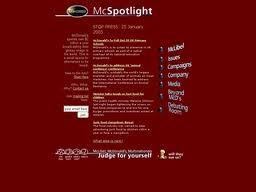
The real website – McSpotlight.org
Let me be honest: Before meeting Suzie, I couldn’t have told you the names of our government’s cabinet members. I knew more about Arsenal Football Club’s reserve side than our shadow cabinet and, being in opposition meant Chelsea, Manchester United, Barcelona, and Liverpool, not the Conservatives, Liberals or the Green Party.
I only got involved because I fancied Suzie (love came along, but much later) and wanted to date her. I can’t tell you at what point I became politically aware, or at what point it went beyond personal, but it did.
This reckless multinational corporation, like so many today, hurt many people I loved and respected. My friends became victims to a business model fueled by the pain and destruction left in its wake, the devastating effect these companies have on the individual who willingly or unwillingly gets in the way of their profit margin.
I admit I was a self-absorbed yuppie out to get laid. But it was when I read The Accidental Activist that I understood the personal transformation that I underwent. And if my story can in any way help someone else make the personal changes necessary to help this embattled world of ours become a better place, well, I am proud to have been the protagonist of The Accidental Activist.
The conventions were pretty, slick, and occasionally amusing. But they were made for TV, for the passive viewing of a population who have become desensitized to real advocacy and are willing to allow the politicians and mass media to spin whatever message they want. Accountability is almost non-existant as politician after politician, who in any other work sector would have been fired a long time ago, continue to pass the blame and hide behind pretty rhetoric. The debt crises didn’t happen last night, neither did the social security fiasco, diminishing education and healthcare and…well you get the picture.
 And the media lap it up. Why not? It makes their life easier. The Internet offers a chance to break this conspiracy. It has helped bring down dictators – it can change the face of our political system – but only if we the people want it bad enough.
And the media lap it up. Why not? It makes their life easier. The Internet offers a chance to break this conspiracy. It has helped bring down dictators – it can change the face of our political system – but only if we the people want it bad enough.
The Accidental Activist is as relevant today as it was in the 90′s.
Matt Fielding
Oilspill.com Webmaster.
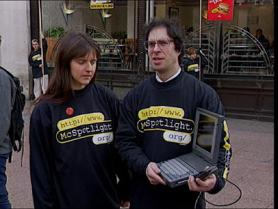
The real heroes – Helen Steel and Dave Morris
——————————————————————————————————
Alon Shalev is the author of The Accidental Activist (now available on Kindle) and A Gardener’s Tale. He is the Executive Director of the San Francisco Hillel Foundation, a non-profit that provides spiritual and social justice opportunities to Jewish students in the Bay Area. More on Alon Shalev at http://www.alonshalev.com/and on Twitter (#alonshalevsf).

September 6, 2012
Football-Minded Obsession – Roger Ingalls
American football, the greatest sport ever conceived. It has all the elements that I love; physical presence, cunning, strategic planning, tactical perfection, statistical tendencies, competitive analysis and the willingness to lay it all on the line.
Football emulates life. Most, if not all, the elements described above are used daily and in many aspects of life. Getting a job, marketing, selling, politics, courting and even mating requires sophisticated gamesmanship.
I’ve watched and played football since I was a kid and my mind has been groomed to pursue every endeavor as if I were on the gridiron chasing the pigskin. It has served me well over the years but there is a downside. It would be nice to just be able to disengage the brain, relax and enjoy life without auto-thinking the next conquest. It’s seems impossible to retrain an old brain. It’s a kill or be killed world.
An aging body can no longer play the sport but some smart football-minded person invented a new game called Fantasy Football for the physically unable to perform. After ten years of trying, I’m proud to say that the title of champion is mine.
The first game of the 2012 regular season is on the TV as I’m writing this post. American football is brutal, exciting, glamorous and defines our warring culture. It epitomizes who we are.
It’s a sickness but I love it. Go Pack Go!


September 5, 2012
Roshaneh Gets What Politicians Don’t
Roshaneh Zafar is helping to fight extremism and create a sustainable model that will discourage recruitment to terrorist organizations by giving people hope that they can live a prosperous and stable way of life. Tell me this does not make political sense whether you sit on the left or the right, or balance precariously in the middle.
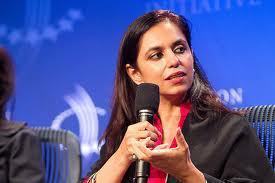 On Monday, I talked about micro-lending as a model to help our domestic policy, This American-educated banker is focusing her efforts on micro-financing and while she has found a way to empower some of Pakistan’s poorest women by giving them the tools and educational opportunities to create businesses and income for themselves and their families, I want to propose that this as a sustainable solution to cutting back our huge financial burden in foreign policy.
On Monday, I talked about micro-lending as a model to help our domestic policy, This American-educated banker is focusing her efforts on micro-financing and while she has found a way to empower some of Pakistan’s poorest women by giving them the tools and educational opportunities to create businesses and income for themselves and their families, I want to propose that this as a sustainable solution to cutting back our huge financial burden in foreign policy.
“Charity is limited, but capitalism isn’t,” Roshaneh told Nicholas D. Kristof in an interview for the New York Times. “If you want to change the world, you need market-based solutions.”
Micro-financing lends a small amount of money to impoverished people that will enable them to set up a business and have a stable income. I wrote about the mechanics in a post last year,
Ms. Zafar grew up in Lahore and took the opportunity to study business at the Wharton School and economics at Yale. She worked for a while at the World Bank before returning to Pakistan in 1996 to start the Kashf Foundation.
Below is an interview with Ms. Zafar. Make yourself a cup of coffee, then sit down and spend 7 minutes with this inspiring woman.

Despite many setbacks, Kashf can now boast 152 branches throughout Pakistan and has loaned over $200 million to more than 300,000 families. Ever thinking ahead, Ms. Zafar is now studying how to leverage this model to encourage the poor to build up savings and accrue assets.
Ms. Zafar is not only helping people start businesses, create jobs and support education that will enable people to break out of the vicious spiral of poverty, but will offer an option to living that is neither violent, nor exploitative.
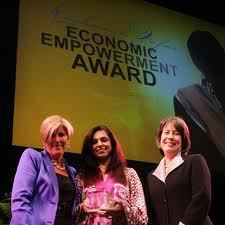 She deserves a Nobel Prize, in economics and in peace. Micro-financing is a tool to ending the very conditions that create terrorism and extremism. Every Western and stable country has an interest in incorporating her model into their foreign policy.
She deserves a Nobel Prize, in economics and in peace. Micro-financing is a tool to ending the very conditions that create terrorism and extremism. Every Western and stable country has an interest in incorporating her model into their foreign policy.
——————————————————————————————————
Alon Shalev is the author of The Accidental Activist and A Gardener’s Tale. He is the Executive Director of the San Francisco Hillel Foundation, a non-profit that provides spiritual and social justice opportunities to Jewish students in the Bay Area. More on Alon Shalev at http://www.alonshalev.com/ and on Twitter (@alonshalevsf).



